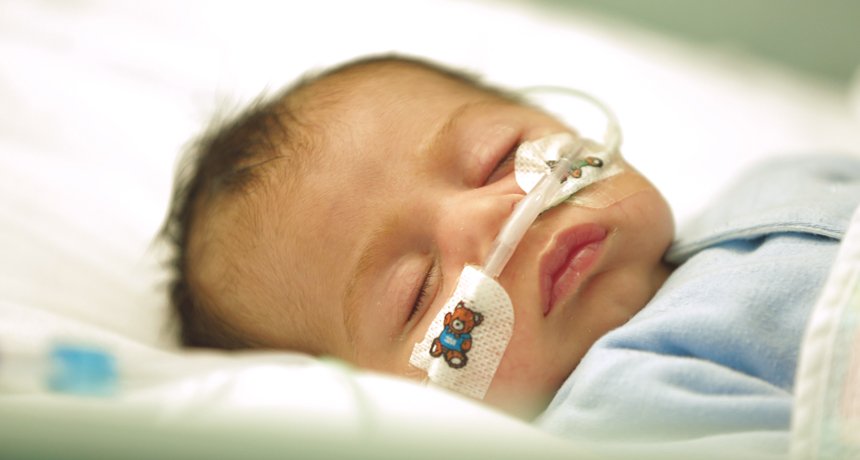‘NOVA’ takes science’s side in vaccine debate
TV show dissects concerns and sets facts straight about vaccinations

STAYING HEALTHY This infant in Australia might have avoided whooping cough if vaccination rates in the surrounding population had been higher.
Courtesy of Genepool Productions
In some quarters, vaccines have become victims of their own success.